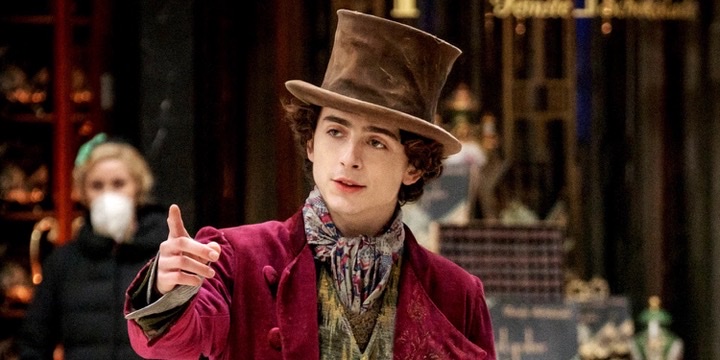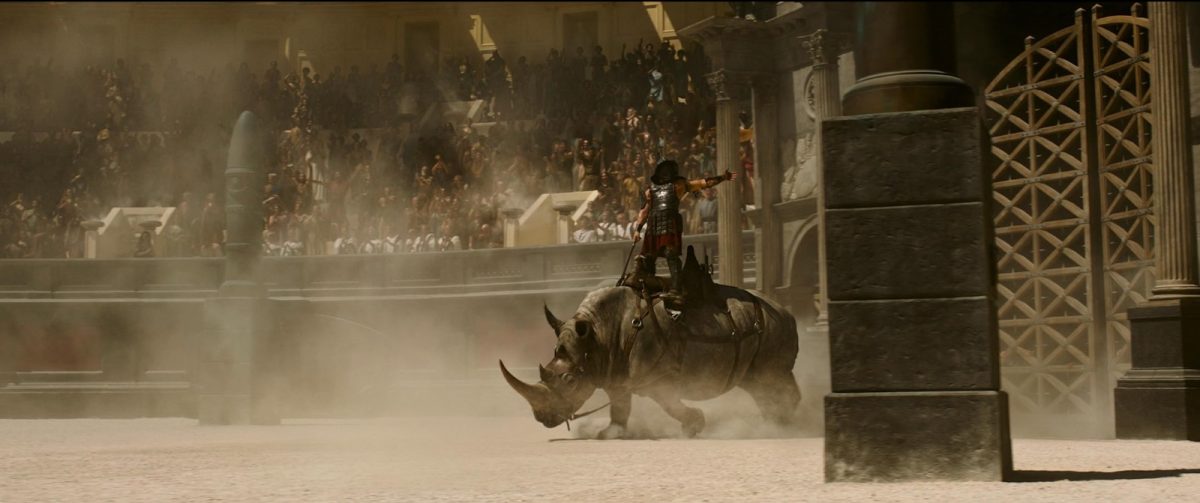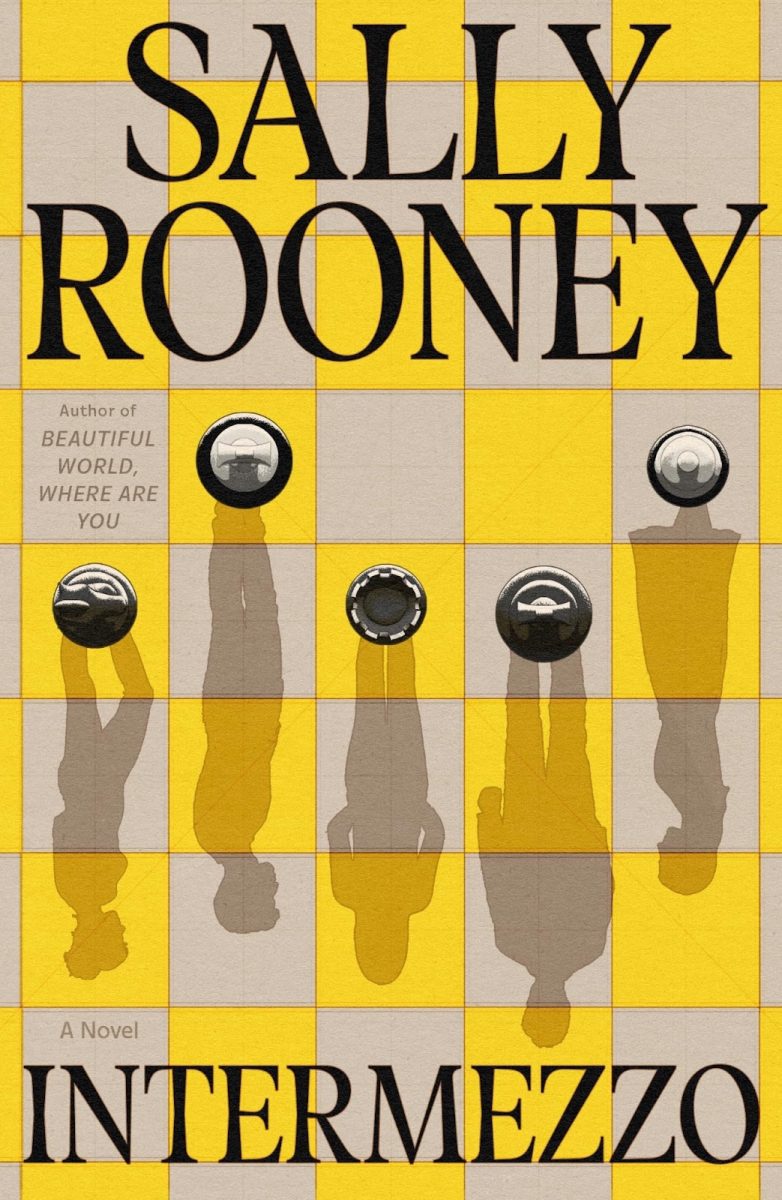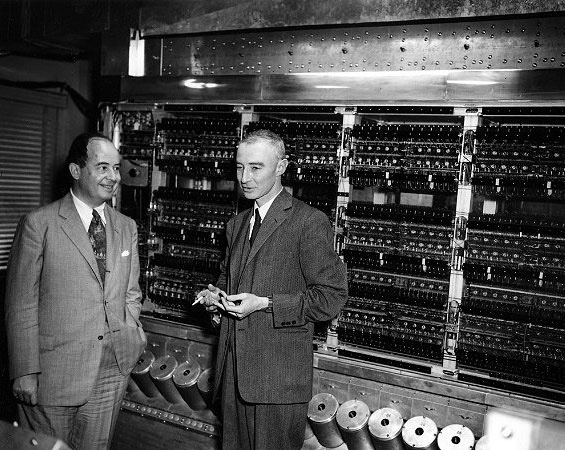The first time I watched “Willy Wonka and the Chocolate Factory” as a four-year-old, I was mesmerized and terrified by Gene Wilder’s enchanting yet haunting presence. By the time I was in the third grade, it had become routine for me to watch the film every day after school; one might say that I had become hypnotized by Wilder’s ingenious performance. It’s safe to say that the movie was a staple of my childhood and still brings me to tears, especially when I hear the iconic song “Pure Imagination.”
I can’t express how important Wilder, one of my favorite actors, and this film, one of my top movies to date, are to my love of creative cinema. I cannot say the same about Tim Burton’s 2005 adaptation “Charlie and the Chocolate Factory,” as Johnny Depp’s dumpster fire performance left me with a fear of bob haircuts for many years (yes, you read that correctly).
So, when “Wonka” — the origin story of the titular character — was originally announced in 2021, I was quite skeptical despite the reputable Paul King (of “Paddington” and “Paddington 2”) being signed on as the project’s director. Two years later, “Wonka” is finally in theaters and to my pleasant surprise, I am impressed with the newest installment in the Willy Wonka universe.
Now, before I start my official review of “Wonka,” I need to highlight the controversial legacy of “Charlie and the Chocolate Factory’s” creator Roald Dahl. Dahl (1916-1990) was a British children’s author who penned many infamous tales, including “Matilda” and “The BFG.” Many of his works have been reimagined into musicals, movies, television shows, and plays. Although he wrote stories that are loved by children and adults throughout the world, he has a complicated history that is shrouded with antisemitism and racism.
My intention in promoting this film is not to endorse Dahl’s name but to instead focus on the wonderful piece that Paul King and company have produced. If you would like to learn more about Dahl’s complicated history, I highly recommend reading this article from Time magazine. As a Jew myself, I have struggled with separating Dahl’s art from Dahl himself. As such, I would also urge readers to check out this article by Kveller, which details how Jewish actors Gene Wilder and Timothée Chalamet have defied Dahl’s antisemitism through their portrayals of Willy Wonka.
“Wonka” stars Timothée Chalamet and has a celebrity-studded cast that includes Olivia Coleman, Keegan-Michael Key, Paterson Joseph, Mathew Baynton, Matt Lucas, Rowan Atkinson, Sally Hawkins, Hugh Grant, Tom Davis, Rakhee Thakrar, Jim Carter, Natasha Rothwell and Rich Fulcher. Calah Lane also makes her impressive film debut by portraying Wonka’s reliable friend Noodle. Everyone in the cast brings a sense of childlike wonder to “Wonka,” thus allowing this charming and colorful story to come to life. However, there is one sore spot in the casting, as Hugh Grant as the Oompa Loompa was one of the worst parts of the film.
Although he makes minimal appearances, Grant still finds a way to ruin every one of his scenes with poor acting and a sour attitude. While the rest of the cast seems to be having the time of their lives, Grant constantly sports an annoyed expression that sadly rains on “Wonka’s” parade.
Luckily, Chalamet’s performance is as sweet and magical as Wonka’s chocolate. Chalamet does a fantastic job portraying Wonka’s curiosity but does not encapsulate the darker side of the candy man that we see in Wilder’s performance and the original book by Roald Dahl. I believe that this is more of a script issue than a fault of Chalamet, as the dialogue does not give the actor the chance to explore the darker side of Wonka.
Based on this origin story alone, I have a very hard time believing that Willy was willing to murder children just twenty years after this film’s events. I am very curious to know what happened between “Wonka” and “Willy Wonka and the Chocolate Factory” that caused this optimistic kid to become the madman that we all know and love. Who can forget that terrifying monologue in the riverboat that has scarred every child who has watched the film. Despite this script issue, I cannot stress enough how good Chalamet is in this role, and, I have to admit, his performance got some tears out of me during the final minutes of the film.
Not just anyone can capture the pure imagination that is Wonka’s world, but Paul King certainly delivers with his excellent directing. The dreary colors of reality contrast beautifully with Wonka’s whimsical dreams of chocolate trees and candied teacups. King certainly pays homage to the original film but not in a blatant and cheesy manner that moviegoers often see at the theater nowadays. Instead, the nods are respectful and act as tools to thoughtfully demonstrate the timeliness of the original film. Furthermore, King’s usage of humor is poignant and genuinely hilarious. There are even some political jokes that would have gotten a good chuckle out of the great Gene Wilder himself.
Sadly, “Wonka,” like many of today’s movies, sometimes relies on computer-generated images (CGI) that are neither believable nor enchanting. Although the film partially resorts to these emotionless effects, there is still some charm to be seen in some spectacular scenes that will surely take one’s breath away.
“Wonka” is also similar to “Willy Wonka and the Chocolate Factory” in the sense that they are both musicals. I adore a good musical, and I’m delighted to report that I loved every song in “Wonka.” Each unique and clever tune in “Wonka” builds off of the other to create a catchy playlist that any movie musical fan can get behind. I was not only blown away by Chalamet’s singing prowess but also that of Calah Lane, who did an excellent job at hitting her emotional beats in one of my favorite songs of the movie “For a Moment.”
One of the hardest things to accomplish in a movie musical is to make the singing scenes visually interesting. “Wonka” takes the challenge and passes the test with soaring colors, as the film’s cinematography completely engages the audience by masterfully blending the incredible choreography with its catchy tunes. I am forever grateful to Paul King for allowing my inner musical theater nerd to come out during “Wonka.”
So, is “Wonka” perfect? Well, it sure does come close to it, as I was certainly enchanted from beginning to end by King’s masterful worldbuilding, Chalamet and company’s charming performances and the scrumdiddlyumptious soundtrack. The only attributes holding me back from giving it a perfect score were Grant’s lackluster performance, the absence of Willy’s darker side and the less-than-ideal CGI. The positives greatly outweigh the negatives in the case of “Wonka” and presents audience members with a golden ticket to unlocking the best parts of their childhood.
Final score: 9/10
















